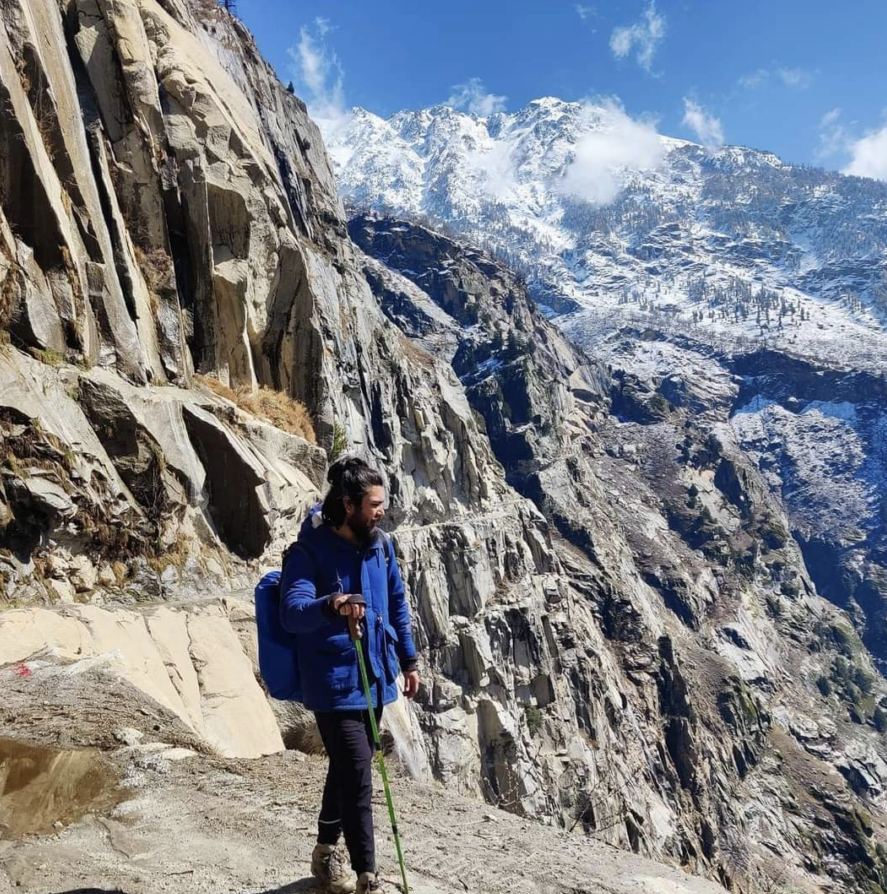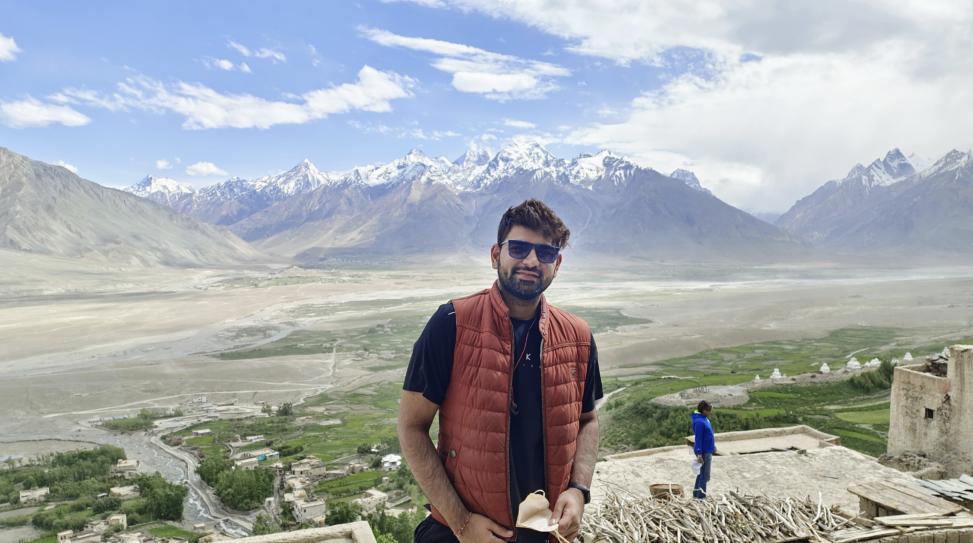
Women Who Taught Me Lessons
Retd. Brig. Rattan Kaul
Watching a child prodigy say, “Loser has to kiss someone,” followed by “Puch-Puch” raised my hackles at the child’s temerity to be so bold. However, this boldness fizzled out the next moment when the adult model told him, “Abhi tumhara time hai.” What a pity! The bold child gave in so tamely and did not stand his ground. The promo transcended me to my childhood when I had earned the sobriquet of ‘Blue Eyed Toddler’ for whatever qualities, physical or otherwise, I possessed.
As the youngest, a two-year-old in a divided family, I had to cross a 15-foot courtyard dividing the two households every morning, then climb another ten stairs to reach my grandmother Bhawani Ded’s puja room. It did not matter that the elders were not on speaking terms; I had to take prasad from her, come what may. Stern stares from the elders, possibly to dissuade me and stop these intrusions, never worked due to my ‘could-not-care-less’ attitude for a mission of my liking. That was lesson one. This ritual stopped only with her death a year later. Though as a crawler, I did keep up the ritual for some time, her short memories had inculcated a ‘could-not-care-less’ attitude in me.
Howling as a four-year-old should have been a potent weapon to get what you want until one day I changed my mind that it is not always so. My howling to get more than my share provoked my grandaunt, Amma Ji, to pierce my left ear with a needle, leaving me bewildered. I grabbed what I wanted and coolly walked off. Lesson number two: once you have set your heart and mind on something, get it whatever way you like it.
As a five-year-old, I had a tough time getting my mother’s attention in the presence of some relatives. This reached a peak when another grandaunt, Radhamal, to keep me quiet, thrust nasvar (snuff) into my nostrils. Not for long; after a short sneezing bout had stopped, I snatched her ornately carved silver nasvar casket and threw it from the second-floor window. The melee that followed ensured the dispersal of all in search operations, except my mother. She understood that her son wanted her attention and patiently heard me out. Of course, I had to do the vanishing trick to avoid the ire of Radhamal. When you want to convey something, ensure you convey it in time, and that was lesson number three.
As a seven-year-old, watching Zoonat Lambardar (Village Head) on horseback in the early 50s, with her high Kashaba (Muslim women headgear of early days), was as good as watching Hillary Rodham Clinton in a limousine as President of the US, with a difference. Hers was a forceful voice, giving orders tamely obeyed even by menfolk. No wonder she was such a success in Wadipora. Her example multiplied my confidence and control acumen—forceful and self-confident—which stood the test of time during my Army days. Lesson number four.
My mother always spent hours with her foster mother, Khuraj, whenever Khuraj visited our place. These visits were frequent even after I was ten years old. Naturally, it peeved me to be deprived of my mother’s attention for so long, with her foster mother hogging the limelight. It was then I decided to act—err, plead with Khuraj Ded to reduce her visits to enable us to be with our mother for more time. She did; plead with reason when need be. Aah, that was lesson number five.
By this time, I had acquired the sobriquet of ‘Cat Eyed Brat’ for many qualities acquired through more encounters, episodes, pranks, experiences, and a list of Do’s and Don’ts. I had graduated to my teens and on the steps of adulthood, a poetic expression took me by storm.
Stood I under the shade of a tree
Smooth with laid green grass,
A pretty star looked out
Through the evening window.
There was no other soul
That saw what I could see,
I stood and watched the star
As long as she watched me
In the next few years, as I stepped into adulthood, the ‘expression’ had transformed me to learn the spirit of self-sacrifice, human compassion and love, purity of thoughts, and the art of living from someone close. Life had taken on meaning; but before I knew it, the dream was lost—not for compassion but for the value of self-sacrifice. I stepped into adulthood; not without a lesson but with a loss, though high on self-values. The years rolled in guilt and pangs, forlorn till the lesson revealed a puritanical road to stay on line. The angel took all the burden on her shoulders, steering me to a life of values, to live for someone close, and that made my family. She taught me no lessons, but we learned lessons together.
Graceful smile of heaven’s hand
Smiling beauty that’s spun afar.
Lovely and chaste like white sand,
A veil of wonder laced in light.
Gently on a summer eve
Giving magic to the lifeless,
Each snowflake like a falling star
Till unspoken poem hushed night.
———————————————

Author Brigadier Rattan Kaul is a distinguished officer of the Gorkha Rifles (with a notable military career spanning 33 years. He actively participated in the 1965 and 1971 wars, sustaining injuries in battle, and played a key role in the Battle of Sylhet . Brig Kaul has also commanded a brigade in Punjab during a period of militancy, earning the COAS Commendation for his exceptional work.
In addition to his military service, Brigadier Kaul is an HRD, management, and defence analyst. He has authored many books on Military history and Kashmir. Notably, he brought the latest photograph of the Sharda Monument in the Neelam Valley (POK) for the first time in over 70 years. His book on Goddess Sharada (2023) is available online. His fourth book in a decade (2014-2024) will be published soon.
Brig Kaul’s extensive research and writings have made significant contributions to the historical and cultural understanding of Kashmir and has published two books.






